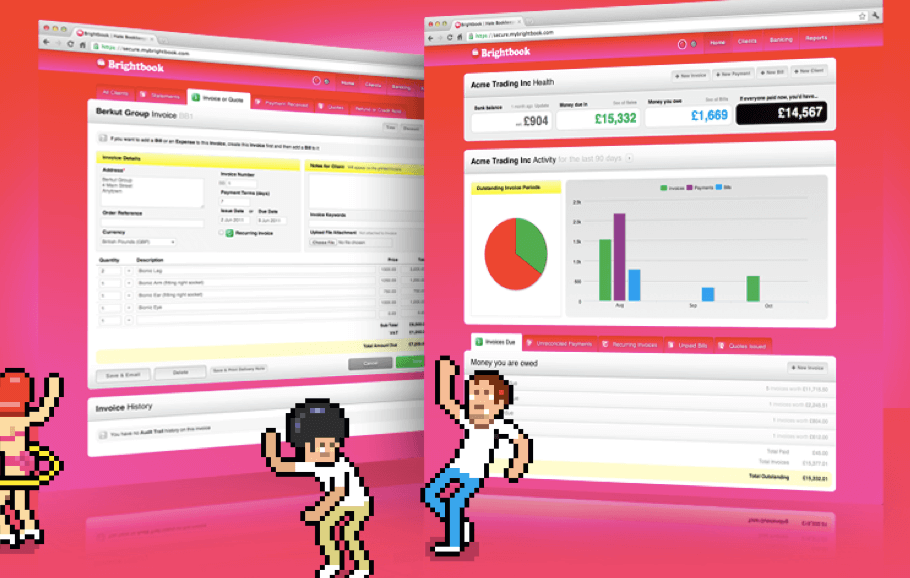It’s no secret that tender writers and bid managers suffer burnout and there is high turnover in these roles. It’s a very pressured job and the stakes can be high – winning or losing a contract can be a make or break for some businesses. Not winning a ‘must win’ tender may mean people at your company lose their jobs or operations are impacted significantly.
If you are currently working in a full-time tender role, depending on your role or the size of the team you are in, your day may involve:
- Facilitating winning strategies and pricing strategies, and working with senior management to get approvals through
Convincing sales teams trying to meet their budget that they should not bid for this one, they have no chance - Managing diverse teams of subject matter experts and personalities, and keeping them motivated and delivering what you need, when you need it
- Writing, editing or proofreading hundreds of pages of responses to client questions that can be repetitive and unclear depending on how good a job the client has done in responding to their tender
- Information management, ensuring content is up to date and ready for the next tender
- Formatting documents and liaising with graphic designers or doing your own graphics and templates to produce a professional response
- Managing multiple tender responses at once, sometimes due on the same day
- Presenting to clients and negotiating contract terms, and maybe even handing over to operations.
All this work is usually done under extreme timeframes that you have little control over; that may see you working long hours, weekends, and cancelling your holidays if the ‘must win’ tender happens to drop at the wrong time.
So what do you do when you are a bid manager or tender writer looking for more life-work balance or part-time work?
Becoming a freelance consultant can cut down the list of tasks you are responsible for so you don’t need to work full time (for example you might only be writing and editing and not managing the full tender), and also give you the flexibility to take longer breaks while not compromising on your annual salary.
Here is a guide for anyone thinking about becoming a freelance tender consultant or writer.
The Pros
- As a consultant you get to work across so many different industries and with so many different people. Your day is so interesting and you learn so much.
- You get to really make a difference to other businesses, even with as little as a few hours on their tender. The wins seem more significant than they did in an in-house role.
- You have some say over which tasks you are responsible for – you might only want to read and review instead of writing the full response, or you might want the client to be responsible for packaging up and submitting the tender – allowing you to work less (and part-time) than if you are responsible for the whole process.
- You can work less and still earn the same as you did in an in-house role.
- You can work from anywhere and usually at a time of day that suits you and your personal situation.
The Cons
- Cashflow can be challenging – jobs don’t always come in when you need them to, you won’t have a regular pay check and there are clients that take a long time to pay. In my experience small businesses pay much quicker than medium to large ones where your invoice sits in an accounts queue.
- Sometimes you have to work when you don’t feel like it. When you are in an in-house role you face this challenge too but there are occasionally little pockets of time between tenders where you get a break, the pressure is off and you can have some easier days to tidy up and complete shut down tasks. When you are a freelancer, you are unlikely to have the easy days, the work is usually always intense so the only way you get a break is if you can take an unpaid one.
- All the cons of running a business on your own – accounting and tax, finding clients, invoicing, no sick leave, paying your own superannuation, insurance etc.

I Have No Experience, Can I Become A Freelance Bid Manager Or Tender Writer?
Yes, if you are organised and a good writer.
I’d suggest you pitch work to smaller businesses like:
- Setting up capability statements or standard proposal responses
- Doing CVs
- Formatting responses and creating templates
- Editing and reviewing responses.
You could also join a tender consultancy and learn from more experienced consultants by starting out in a bid coordinator role.
Then when you have some experience under your belt you can move into bid management consulting and work with larger organisations or specialise within an industry. You should also consider getting an APMP qualification.
The best tender writers and bid managers – and the ones who last the longest in the industry – have the right skill set – a combination of good organisation, self-motivation and working well under pressure, a good communicator and able to work with different personality types, plus be a super user in Microsoft Word and Excel.
This is a career where every day is different so prepare to be challenged!
How Do I Find Clients?
Here are some ideas:
- Reach out to previous employers and ask them if they might need your assistance from time to time – it is an advantage for a business to have a tender manager on hand when too many bids come in for their in-house team to manager.
- Reach out to other consultants who are already established and tell them you are available to work. They may bring you into their team or pass on clients for a commission.
- Build your network through networking events. These can be anything from local meetups with others in your industry, to conferences and trade shows.
- Update your LinkedIn profile and state you are available for work.
- Set up your website and make sure it’s easy for people who come across it to find out more about you – what services do you offer? What experience do you have? How much does it cost? The more information about yourself that potential clients can learn from looking at your website or social media profiles, the better chance they have of deciding whether or not they’d like to work with you as a freelance tender consultant.
- Develop a social media presence.

Demonstrate Your Ability To Do The Work
Having samples of your work is a great way to show clients what you can do for them. This is particularly important for longer term freelance roles where you will be responsible for writing.
Collect testimonials and examples of clients you have worked for, as well as organisations you have won tenders with. For example, if you have won tenders with the Department of Defence or another large government organisation, this shows the client that you understand what is needed at this complex level of tendering. Likewise, if you are in a regional area and have won many tenders for your local council, this shows you understand what the council wants to hear about in tender responses and the council’s processes.
You could also offer to work on one of their tender responses for free for a few hours, giving them an opportunity to see the value you can bring.
What Should I Charge?
In Australia, the going rate really varies depending on your experience. From $80 an hour for people with less experience, up to $200 an hour for the most experienced consultants. You should set your prices based on your experience, the level you feel comfortable charging and based on feedback from clients. For longer assignments you might discount the rate based on.
Remember when setting your prices you are usually responsible for paying your own superannuation and workers’ compensation insurance so you need to take this into account in your rate.
Do I Need A Contract?
Yes always a good idea, including an outline of the assignment duration and scope, as well as payment rates and terms.
Depending on the assignment and the client, they might present a contract to you including a confidentiality clause.
The best way to work with clients on a tender
So you have won a job, how do you work with the client?
Microsoft Teams completely changed the opportunity to collaborate with clients on tenders. You have to get comfortable with clients seeing your work in a live environment, but once you get used to this Teams has so many efficiency advantages when responding to a tender in a short timeframe.
Microsoft Teams eliminates version control issues and gives the client the ability to answer a lot of your questions directly in the document and review as you write. No more sorting through thousands of emails to make sure you have included everyone’s content.
Ask the client to invite you to their Teams environment if they use it, or set up a team to work through the tender responses with them.
Keys To Success
A key to success is getting wins on the board for a client. If you win a tender for them, they will come back to you again and again, so you won’t need to work hard to find your next job. With repeat business you will also write better and better tenders for them each time as you get to know their business.
I have found another key to success is availability. Delivering to short time frames when your client is under pressure means they know they can call upon you as a ‘safe pair of hands’.
Happy Tendering!
If you are a Tender Writer or Bid Manager and want to collaborate with other like minded individuals, I also have a private Facebook group you can request access to here – https://www.facebook.com/groups/5904416086346492
With a career in tendering that spans multiple countries and 25 years, she is one of the original Bid Managers from a time when the career was just being defined.
Each year she helps hundreds of businesses across the world to grow through winning new contracts. She is passionate about making the process simple and affordable, and provides templates and guidelines, as well as coaching for other tender writers, on tenderadvice.com.
She helps businesses all over the world to win tenders, streamline their bidding processes and grow. Rebecca has helped companies win thousands of tenders across all industries.
She’s a tender nerd and a mother to three + Bob the labradoodle. Rebecca lives near the beach in sunny Australia.






